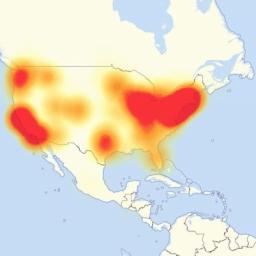
An ultrafast broadband installation that technicians have jokingly dubbed "fibre to the throne" has left New Zealand networking company Chorus red-faced. An optical network terminal (ONT) - where optical-fibre transitions to home wiring - was
installed on the back wall of a toilet in a Lower Hutt home with leads draped over the lid of the cistern. It shared a power socket with a washing machine and had to be plugged when that was in use.
In its annual report, TDR recounted a complaint it had received from a 71 year-old woman who was asked to stand on a hot water cylinder to plug in her phone. That was so technicians could troubleshoot a problem with her landline, after an ONT was installed in her hot water cupboard. Pullen said that case was an extreme and "bizarre" example of a wider issue of UFB installers placing equipment where it was convenient for them, rather than homeowners.
Chorus typically received about 10 "queries" on the 600 installs it arranged each day, Chorus spokesman Nathan Beaumont said. "Anyone who has any experience of building projects of this nature will know occasionally there will be snags."
Comcast, AT&T, Verizon, and others have created very favorable conditions for themselves, but in the fight for better broadband, more cities, towns, counties, and municipalities are building their own high speed networks. And many have been hugely successful. Sandy, Oregon became one of the first towns to start offering fiber internet without the help of a local power utility, and Madison, Wisconsin may become one of the first cities to build its own network and lease it to other operators.
There are startup internet service providers such as Ting and Brooklyn Fiber competing with incumbents. Rural power co-ops have found themselves well positioned to build fiber networks into sparsely populated areas without losing money, which was deemed impossible by big telecom companies who refused to invest in places without high population density. Even cities in states with legal barriers: Nebraska prevents cities laying their own fiber, so Lincoln built a conduit system-the tubes that actually hold the fiber-and is leasing that space to Allo Communications. Increasingly, these networks are being paid for with loans rather than federal government grants or taxpayer money, meaning the lenders see them as financially viable, long-term investments.
http://motherboard.vice.com/read/communities-are-taking-back-their-broadband-destiny-from-big-telecom
At least two successive waves of online attacks
blocked multiple major websites Friday, at times making it impossible for many users on the East Coast to access Twitter, Spotify, Netflix, Amazon, Tumblr, Reddit and other sites. The first attacks appear to have begun around 7:10 a.m. (ET) Friday, then resolved towards 9:30 a.m., but then a fresh wave began.
The cause was a large-scale distributed denial of service attack (DDoS) against Internet performance company Dyn that blocked user access to many popular sites. Amazon, whose web service AWS hosts many of the web's popular destinations including Netflix, also reported East Coast issues around the same time. Such DDoS attacks have a long history online but may be increasing in numbers and severity with the recent release of easy-to-use computer code to create them.
White House Press Secretary Josh Earnest said the Department of Homeland Security was "monitoring the situation" but that "at this point I don't have any information about who may be responsible for this malicious activity." Others worried the attack could be from a nation-state rather than simply a single individual seeking to wreak havoc.
An internet outage expert at US internet monitor Dyn, along with several bloggers, believe that a Russian Navy spy ship may be tapping and disrupting underwater cables in the Mediterranean Sea that feed internet to Syria. While telecommunications experts argue that this isn't likely, several factors have aligned that seem to support this theory.
In 2015 Russian Navy oceanographic vessel Yantar was suspected by US intelligence of collecting data from underwater cables in the Caribbean whilst also spying on the US nuclear submarine fleet off the coast of Cuba. Fast forward to October 2016, and
that same ship is moored off the coast of Syria, amidst ongoing internet outages in the country. With a previous history of internet outages in Syria linked to combat offensives by al-Assad forces, it suggest something of a conspiratorial nature may be at hand.
Tapping an underwater cable would be no easy task. "It is technically possible to tap an optical fiber, but getting access to it on the bottom of the ocean, through the steel armoring and high voltage would be a challenge best avoided." Still, "it does seem kind of suspicious." Other experts suggested that instead of the Russians, it could be seismic activity to blame for the disruption, as the Eastern Mediterranean is an active seismic area.
New York City's cutting edge public Wi-Fi project, LinkNYC has hit some stumbling blocks. After continued complaints about people viewing pornography and other inappropriate content, on September 14 LinkNYC completely turned off browsing capabilities
for the tablets installed in each kiosk. Their main functionality-free public Wi-Fi, phone calls, map functions, and USB charging ports has not changed. LinkNYC notes that "The kiosks were never intended for anyone's extended, personal use."
Many people continued to browse the web using their own device, tethered to the kiosks' free Wi-Fi and charging ports, seemingly allowing continued misuse that LinkNYC is trying to prevent. While the city's desire to provide the city's under-served with access to an important utility is admirable, they do not want the social problems to be visibly manifesting on street corners. The "home offices" being improvised on street corners with homeless and loiterers camped out on overturned newspaper stands around the city, does not seem to be exactly what the city had it mind when it pledged to help break down the digital divide.
Cloud management provider and co-founder of OpenStack, Rackspace says
it will be going private in a deal that will pay shareholders $4.3bn. Investment house Apollo Global Management will be paying $32 per share to buy out stakeholders and run Rackspace as a privately held company. Rackspace stock closed yesterday (prior to the announcement) at $30.19 per share.
Pending stockholder approval, the deal is expected to be completed in the fourth quarter of this year. News of the deal hardly comes as a surprise - reports of an imminent deal to take the company private surfaced weeks ago, causing Rackspace's stock price to soar in the meantime. The acquisition could help Rackspace in its efforts against larger competition in the cloud management space. The company had entertained the idea of a buyout in 2014, but backed out of talks.
FossForce has
an interesting video interview with Timothy Lord:
The original Slashdot crew was declared redundant in early 2016 by the site's latest owner, Slashdot Media. Timothy Lord was the last of the early Slashdot editors to be let go, and has posted more stories on Slashdot than anyone else, ever, so we turned to him to learn how and why Slashdot helped the FOSS movement grow and eventually infiltrate mainstream IT.
The questions are mainly geared toward FOSS, but he does talk about "news for nerds" and explains the role that discussion sites, such as Slashdot, played in the community.
What form do you think discussion sites of the future will be? Will everyone still be staring at Facebook feeds and Twitter tweets in 20 years? Do human curated story sites (slash-like) have advantages over generic link sharing sites (like reddit, digg)? Or is every site just regurgitating the same generic news year after year and it doesn't really matter what form it takes?
Like many others, Bruce Schneier is
sounding the alarm that the Internet of Things security nightmare isn't just about things like poor or non-existent security for thermostats: rather, that "software control" of an ever-widening pool of interconnected devices and systems designed to act without human intervention creates an urgent threat the likes of which we've never seen.
Schneier says, "A recent Princeton survey found 500,000 insecure devices on the internet. That number is about to explode. Autonomy. Increasingly, our computer systems are autonomous. They buy and sell stocks, turn the furnace on and off, regulate electricity flow through the grid, and-in the case of driverless cars-automatically pilot multi-ton vehicles to their destinations. Autonomy is great for all sorts of reasons, but from a security perspective it means that the effects of attacks can take effect immediately, automatically, and ubiquitously."
Yahoo has sold off its operating business for about $4.8 billion to Verizon Communications in a cash deal that will reduce the storied tech company to mainly holding its cash, valuable stake in Alibaba, Yahoo Japan and non-core patents. Once a mainstay of the internet, Yahoo steadily declined in popularity and relevance as it failed to keep up with its competitors. For $4.8 billion, Verizon will get Yahoo's 1 billion monthly active users, its internet properties and key applications like search, email, and Yahoo's advertising systems. Yahoo will get yet another chance to reinvent itself and possibly find a way to make itself relevant in today's market. No word on if president and Chief Executive Officer
Marissa Mayer will be retained.

Last July,
HEVC Advance announced onerous licensing terms which cast a shadow on HEVC/H.265 video compression technology. Encoder/decoder pricing of $0.80 to $1.50 per unit, with no minimum and no maximum cap, even backdated to the technology's first use! They also demanded a 0.5 percent royalty on HEVC-encoded content. Industry reaction to the proposed royalty was universally negative.
This seems the motivation for the big news in August, when a new consortium called the Alliance for Open Media announced that
it will begin work on a free video compression standard. The group includes tech giants Amazon, AMD, ARM, Cisco, Google, Intel, Microsoft, Mozilla, Netflix, Nvidia and more, while Apple is conspicuously absent. These large companies currently pay hundreds of millions in royalties for video patents and would greatly benefit from widespread adoption of a free and open standard.
Within the next six months Google expects to turn over its work on VP10 to the Alliance, which will blend Google's contributions with those from others to create a final royalty-free video codec standard. In addition, the Internet Engineering Task Force started development of a video codec standard called NetVC, of which VP10 is one candidate, so "some harmonization will be needed," between the two organizations.
 An ultrafast broadband installation that technicians have jokingly dubbed "fibre to the throne" has left New Zealand networking company Chorus red-faced. An optical network terminal (ONT) - where optical-fibre transitions to home wiring - was installed on the back wall of a toilet in a Lower Hutt home with leads draped over the lid of the cistern. It shared a power socket with a washing machine and had to be plugged when that was in use.
An ultrafast broadband installation that technicians have jokingly dubbed "fibre to the throne" has left New Zealand networking company Chorus red-faced. An optical network terminal (ONT) - where optical-fibre transitions to home wiring - was installed on the back wall of a toilet in a Lower Hutt home with leads draped over the lid of the cistern. It shared a power socket with a washing machine and had to be plugged when that was in use.
